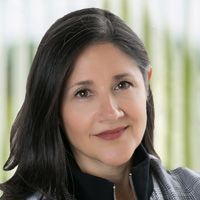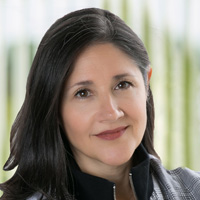5 Charitable Surprises about High-Net-Worth Families
They might be out of the spotlight, but smaller family foundations are stepping up their giving in this time of need.


Profit and prosper with the best of Kiplinger's advice on investing, taxes, retirement, personal finance and much more. Delivered daily. Enter your email in the box and click Sign Me Up.
You are now subscribed
Your newsletter sign-up was successful
Want to add more newsletters?

Delivered daily
Kiplinger Today
Profit and prosper with the best of Kiplinger's advice on investing, taxes, retirement, personal finance and much more delivered daily. Smart money moves start here.

Sent five days a week
Kiplinger A Step Ahead
Get practical help to make better financial decisions in your everyday life, from spending to savings on top deals.

Delivered daily
Kiplinger Closing Bell
Get today's biggest financial and investing headlines delivered to your inbox every day the U.S. stock market is open.

Sent twice a week
Kiplinger Adviser Intel
Financial pros across the country share best practices and fresh tactics to preserve and grow your wealth.

Delivered weekly
Kiplinger Tax Tips
Trim your federal and state tax bills with practical tax-planning and tax-cutting strategies.

Sent twice a week
Kiplinger Retirement Tips
Your twice-a-week guide to planning and enjoying a financially secure and richly rewarding retirement

Sent bimonthly.
Kiplinger Adviser Angle
Insights for advisers, wealth managers and other financial professionals.

Sent twice a week
Kiplinger Investing Weekly
Your twice-a-week roundup of promising stocks, funds, companies and industries you should consider, ones you should avoid, and why.

Sent weekly for six weeks
Kiplinger Invest for Retirement
Your step-by-step six-part series on how to invest for retirement, from devising a successful strategy to exactly which investments to choose.
Family philanthropy is a key driver of social change and a great way for high-net-worth (HNW) families to clarify their values, commit to a mission and work collaboratively across generations to build and protect their legacies.
We recently analyzed the grantmaking activities of more than 1,000 private foundations over the past 24 months to understand how and where wealthy families are focusing their giving. Our findings provide a benchmark for affluent philanthropists and the advisers who support them.
Here are our top five discoveries about HNW donors:
From just $107.88 $24.99 for Kiplinger Personal Finance
Become a smarter, better informed investor. Subscribe from just $107.88 $24.99, plus get up to 4 Special Issues

Sign up for Kiplinger’s Free Newsletters
Profit and prosper with the best of expert advice on investing, taxes, retirement, personal finance and more - straight to your e-mail.
Profit and prosper with the best of expert advice - straight to your e-mail.
They don’t just give the minimum
If you think affluent families only use their foundations to park assets and get tax benefits, think again. While foundations are required to give away 5% of their assets every year, those in our research sample gave away an average of 7.4% – a trend that has been constant in the 12 years we’ve conducted this analysis. Even more impressive, the smaller foundations, or those with less than $1 million in assets, were the biggest heroes in 2020: They gave an average of 15% of their assets.
They’re increasingly generous
The foundations we studied collectively funded approximately 1,000 more grants and dispersed $15 million more in 2020 than in 2019, an average of $339,032 per foundation. They also doubled their grants to individuals (GTIs), a giving capability unique to private foundations that enables donors to issue emergency funding directly to people in need instead of granting to a public charity.
They will answer the call
Judging from their actions in 2020, foundation donors will move swiftly to help in times of urgent need. After the United States declared a national emergency in March 2020 due to COVID-19, foundations nearly doubled their year-over-year grant volume in April from 5.6% to 9.7% of total activity. They also increased their giving to human services and public/societal benefits charities, which experienced the highest year-over-year increases of all the charitable sectors tracked.
Additionally, the dollars that donors granted to charity exceeded the funds they invested in their foundations for only the second time in 20 years (the first being in 2019), demonstrating a pronounced commitment to philanthropy during a time of heightened need.
They're loosening the reins on how their dollars are spent
Typically, philanthropists carefully define how they want their foundation dollars to be used by issuing “specific-purpose” grants. However, as they endeavored to meet the onslaught of urgent need in 2020, they eased their restrictions and gave more “general purpose” grants to afford charities maximum flexibility in how to use the funding. At 46% of all grants in 2020, it’s the most balanced split we’ve seen since 2010 when general purpose grants represented just 32% of giving.
Their resources are growing
Foundation endowments experienced double-digit growth in both 2020 and 2019, helping to fund the 2020 increase in grants and set the stage for future giving. Part of the growth was fueled by investment returns (roughly 55% of endowment assets are allocated to equities) and part was a factor of new contributions from funders who replenished an average of 57 cents for every 83 cents they disbursed in grants and expenses – a sure sign of ongoing charitable intent.
Despite the headlines that are given to megadonors, such as the Gates Foundation and the Ford Foundation, 98% of the roughly 100,000 private foundations in the U.S. have endowments of less than $50 million and 63% have less than $1 million. Great work is being fueled by people out of the spotlight who are quietly and persistently pursuing their philanthropic missions and effecting change.
To view our full study on HNW giving, visit here.
Profit and prosper with the best of Kiplinger's advice on investing, taxes, retirement, personal finance and much more. Delivered daily. Enter your email in the box and click Sign Me Up.

Hannah Shaw Grove is the chief marketing officer of Foundation Source, founder of "Private Wealth" magazine and author of 11 data-based books and hundreds of reports and articles on topics relating to the creation, management, disposition and transfer of wealth. Hannah has previously been the chief marketing officer at Apex Clearing, iCapital Network and Merrill Lynch Investment Managers and is a cum laude graduate of Harvard University. She holds the FINRA Series 6, 7, 24, 26 and 63 licenses.
-
 Dow Leads in Mixed Session on Amgen Earnings: Stock Market Today
Dow Leads in Mixed Session on Amgen Earnings: Stock Market TodayThe rest of Wall Street struggled as Advanced Micro Devices earnings caused a chip-stock sell-off.
-
 How to Watch the 2026 Winter Olympics Without Overpaying
How to Watch the 2026 Winter Olympics Without OverpayingHere’s how to stream the 2026 Winter Olympics live, including low-cost viewing options, Peacock access and ways to catch your favorite athletes and events from anywhere.
-
 Here’s How to Stream the Super Bowl for Less
Here’s How to Stream the Super Bowl for LessWe'll show you the least expensive ways to stream football's biggest event.
-
 How to Add a Pet Trust to Your Estate Plan: Don't Leave Your Best Friend to Chance
How to Add a Pet Trust to Your Estate Plan: Don't Leave Your Best Friend to ChanceAdding a pet trust to your estate plan can ensure your pets are properly looked after when you're no longer able to care for them. This is how to go about it.
-
 Want to Avoid Leaving Chaos in Your Wake? Don't Leave Behind an Outdated Estate Plan
Want to Avoid Leaving Chaos in Your Wake? Don't Leave Behind an Outdated Estate PlanAn outdated or incomplete estate plan could cause confusion for those handling your affairs at a difficult time. This guide highlights what to update and when.
-
 I'm a Financial Adviser: This Is Why I Became an Advocate for Fee-Only Financial Advice
I'm a Financial Adviser: This Is Why I Became an Advocate for Fee-Only Financial AdviceCan financial advisers who earn commissions on product sales give clients the best advice? For one professional, changing track was the clear choice.
-
 I Met With 100-Plus Advisers to Develop This Road Map for Adopting AI
I Met With 100-Plus Advisers to Develop This Road Map for Adopting AIFor financial advisers eager to embrace AI but unsure where to start, this road map will help you integrate the right tools and safeguards into your work.
-
 The Referral Revolution: How to Grow Your Business With Trust
The Referral Revolution: How to Grow Your Business With TrustYou can attract ideal clients by focusing on value and leveraging your current relationships to create a referral-based practice.
-
 This Is How You Can Land a Job You'll Love
This Is How You Can Land a Job You'll Love"Work How You Are Wired" leads job seekers on a journey of self-discovery that could help them snag the job of their dreams.
-
 65 or Older? Cut Your Tax Bill Before the Clock Runs Out
65 or Older? Cut Your Tax Bill Before the Clock Runs OutThanks to the OBBBA, you may be able to trim your tax bill by as much as $14,000. But you'll need to act soon, as not all of the provisions are permanent.
-
 The Key to a Successful Transition When Selling Your Business: Start the Process Sooner Than You Think You Need To
The Key to a Successful Transition When Selling Your Business: Start the Process Sooner Than You Think You Need ToWay before selling your business, you can align tax strategy, estate planning, family priorities and investment decisions to create flexibility.